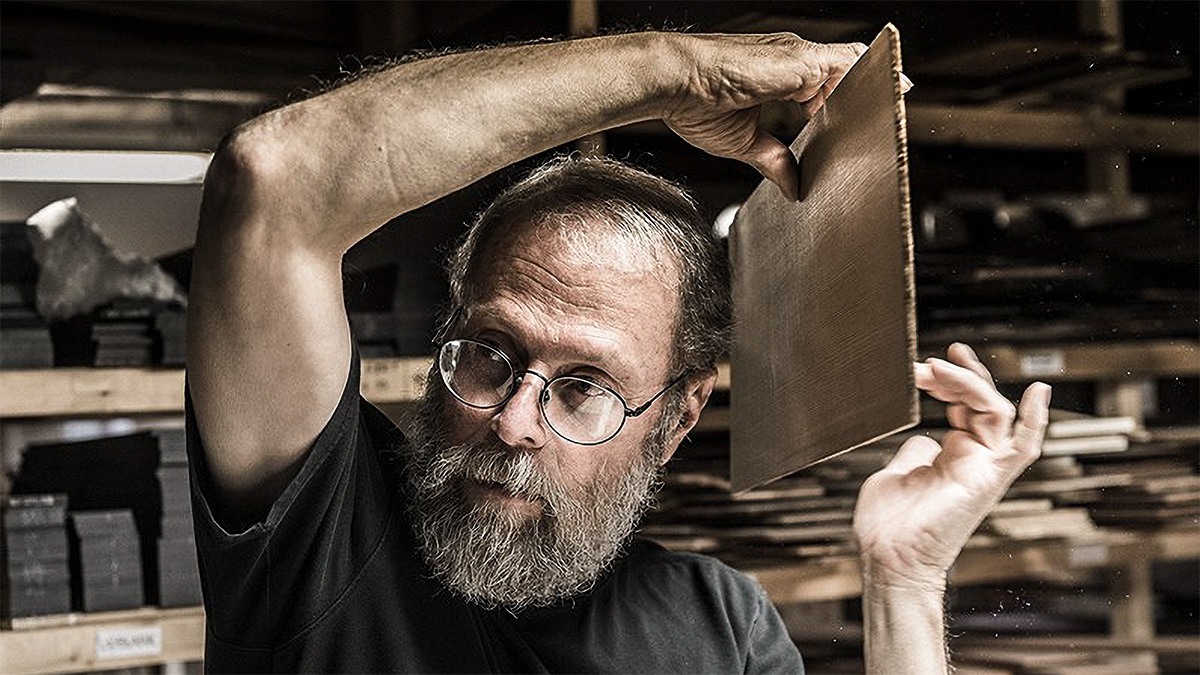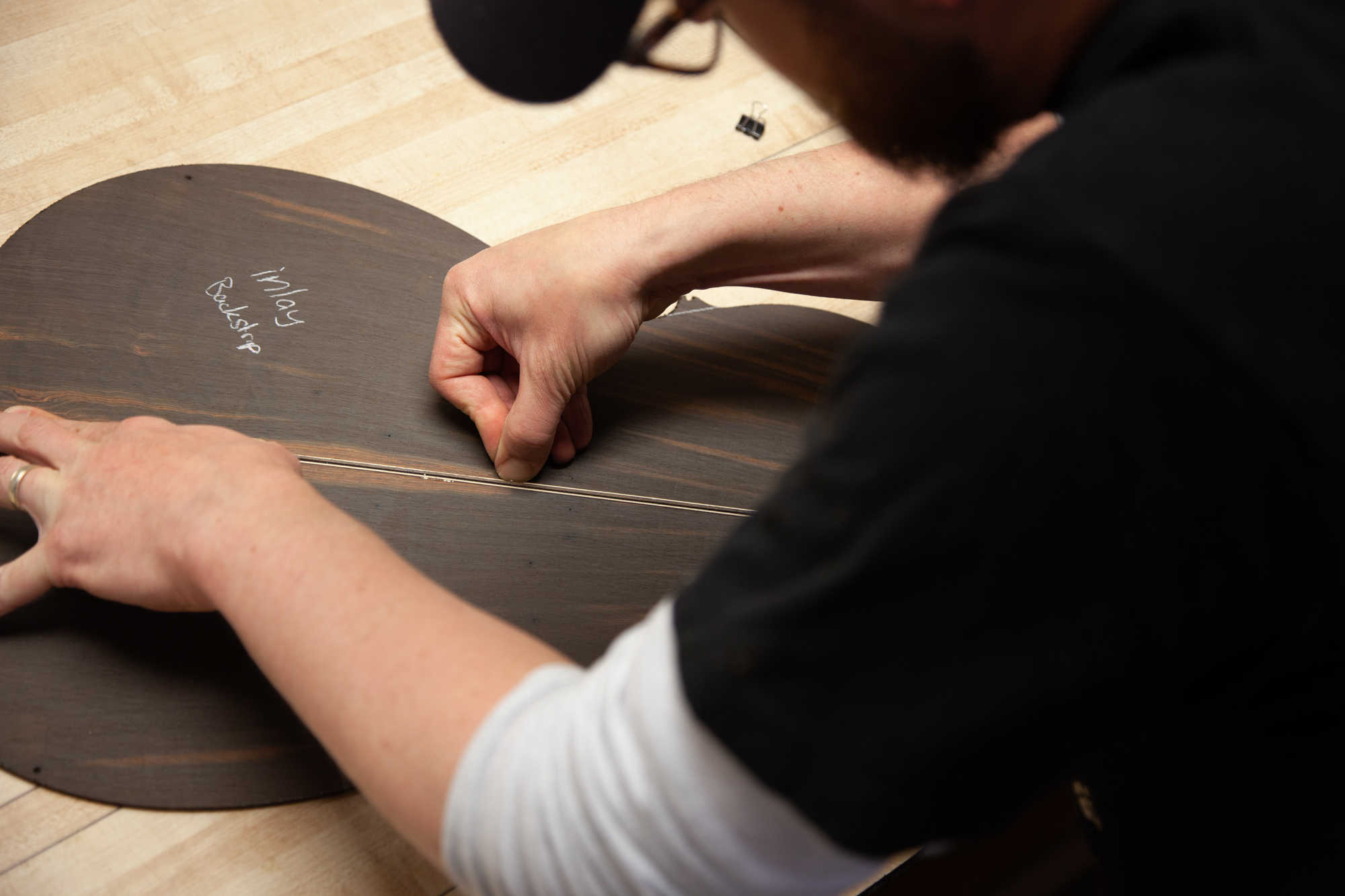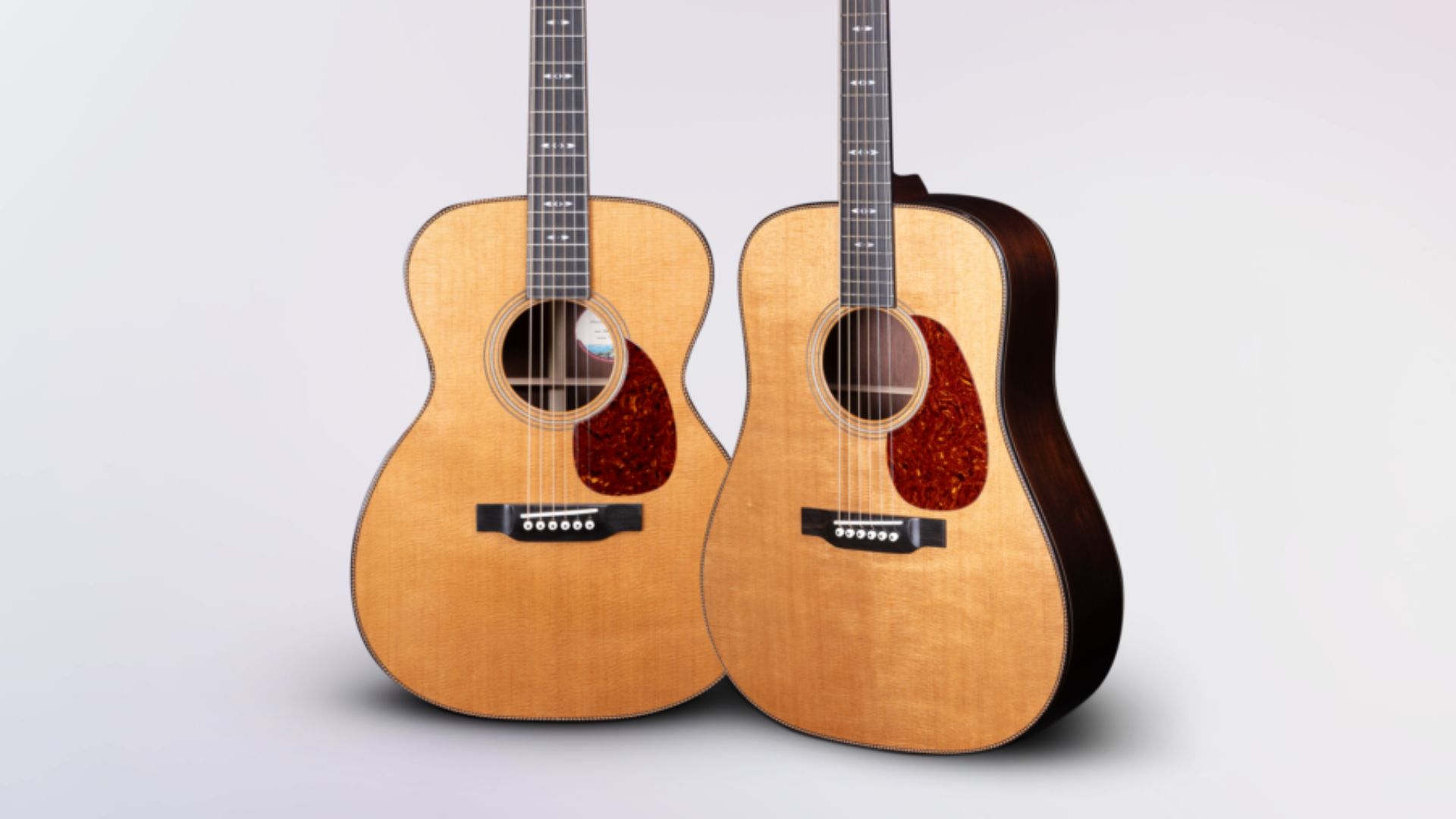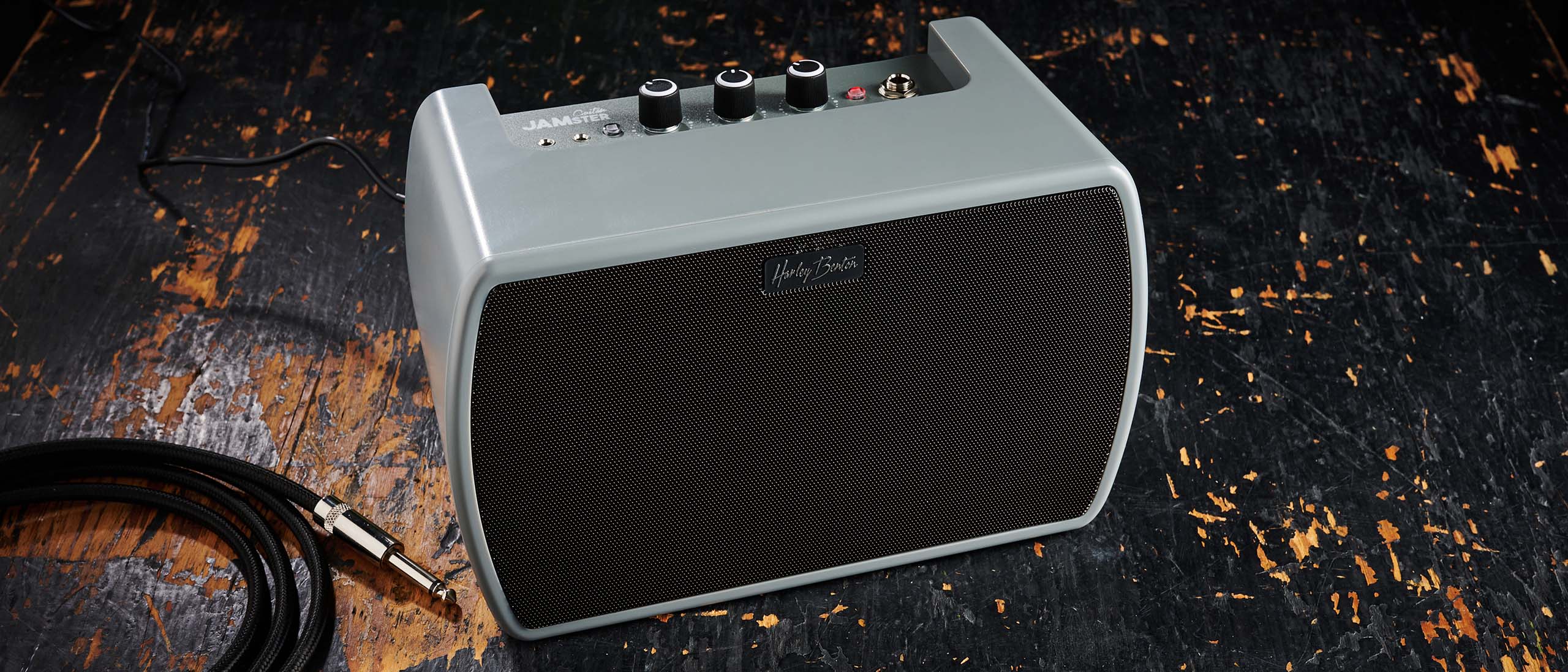“Tony Rice said, ‘This is the sound you should be going for – you just need to put it in a bigger package’”: How Dana Bourgeois led the OM-style acoustic renaissance and turned Bourgeois Guitars into a guitar craftsmanship powerhouse
From earning the Bluegrass Hall of Famer's approval in his early days, to producing 500 intimately crafted guitars a year and landing an innovative partnership with Eastman, the experienced luthier is decades deep into the business – but still has an intense “infatuation with guitars”

Bourgeois Guitars is responsible for crafting around 500 of the highest-quality guitars on the market. Dana Bourgeois, the luthier behind the company, is now known for the OM-style guitar renaissance and for contributing to advancements in acoustic guitar design and voicing. However, his success has been decades in the making, with a culture of tools and craftsmanship firmly rooted in his family.
His dad was an amateur woodworker, while his grandfather was a machinist. It wasn’t until college, however, and a chance encounter with Irving Sloane’s book Classic Guitar Construction, that Bourgeois took an interest in what had surrounded him his whole life.
“The photography in that book really drew me in, and I decided, what the heck, let’s give it a try. I learned from The Whole Earth Catalogue that Guirian Guitars, located a few hours away in Hinsdale, New Hampshire, and which sold various guitar-making supplies - a rare resource to find in 1974 – so I got in the car and loaded up on wood, nut and saddle material, tuners, et cetera,” recalls Bourgeois.
“My college wasn’t too far away from my dad’s and my grandfather’s shops, and that gave me access to tools and other significant resources and to a wealth of practical advice.”
In 1975, just a year after he started his guitar-making journey, Bourgeois completed his first guitar while shuffling between his dorm room, his friend's woodworking shop, and his family's shops. Fast-forward two years, and, fresh out of college, Bourgeois had already started a one-man guitar repair and building shop in Brunswick, Maine.
It was during these early years that he built a relationship with a figure that would impact the rest of his trajectory – influential bluegrass guitarist Tony Rice.
“I was introduced to Tony back in the mid-1980s by his manager, Kari Estrin. At the time I was repairing and restoring guitars through The Music Emporium in Boston and had worked on a couple of Kari’s guitars,” says Bourgeois.
Get The Pick Newsletter
All the latest guitar news, interviews, lessons, reviews, deals and more, direct to your inbox!
“Tony was staying in Boston for a series of shows in the area, so a meeting was arranged at the home of Eric Schoenberg, a co-owner of The Music Emporium and later my partner at Schoenberg Guitars. Tony spent the evening playing his way through Eric’s guitar collection and graciously let me and Eric play his famous D-28.”
The ambitious young luthier decided to take a chance and show Rice his own work. “One day, I brought along two guitars, a Dreadnought and an OM [Orchestra Model], only intending to show the Dread. After Tony played the Dread and offered some polite, though not entirely approving comments, he asked me what was in the other case.”
Rice ended up playing the OM longer than the Dread. When he finally stopped, he proclaimed, “This is the sound you should be going for. You just need to put it in a bigger package.”
“After a little discussion, I realized what impressed Tony – a player who used every note on the fingerboard – was the string-to-string and note-to-note balance of the OM. Balance is a natural hallmark of most Oms, but was notably lacking in my earlier Dreadnoughts. That was a lightbulb moment for me and ended up changing the course of my career.”

Since that faithful nudge by Rice, Bourgeois has been instrumental in reintroducing the OM-style guitar to modern players. It was also thanks to Schoenberg, an early champion of his work, that this model, and by extension, Bourgeois' work, gained wider recognition.
“As a performer and dealer of vintage instruments, Eric became instrumental in spreading word of the OM’s magical properties. Original examples were greatly undervalued, so Eric started buying up whatever he could find on the national market, restoring or repairing them, and reselling to his growing legion of “OM converts”. Eric and I became friends, and I ended up working on a lot of those guitars.”
“Because just about every guitar built in the early 1930s needed a certain amount of repair or restoration work, I had the good fortune to get my hands on quite a few vintage OMs over a relatively short period of time and got to know those guitars from the inside out.”
Around the mid-1980s, Schoenberg attempted to persuade Martin Custom Shop to build a few custom OMs, using a cutaway OM that Bourgeois had built as a proof of concept. Martin declined, saying the cutaway would not be “appropriate” on a Martin guitar.
Business-savvy Schoenberg turned this rejection into an opportunity. “When Eric asked if they’d produce a cutaway OM branded under his name, to our surprise, Martin agreed. Schoenberg Guitars was soon born with Eric and me as equal partners. The Schoenberg Soloist was not only the first OM to feature a cutaway, but it was also the first production OM issued since the 1930s.”
Since those days, Bourgeois guitars have been played by the likes of Doc Watson, Ricky Skaggs, Bryan Sutton, and Andy Falco, to name but a mere few.
The brand continues expanding into different sectors – a growth that didn't go unnoticed in the industry and one that led to a partnership with Eastman Music, the international company founded by Qian Ni in 1992 which prioritizes affordability without sacrificing craftsmanship.
“Much to my surprise, Eastman approached us one day. They were looking to partner with a boutique brand with whom to co-produce a mid-priced line of acoustic guitars.” Bourgeois explains that just months before, his team had conducted a year-long business study that revealed massive opportunities in the Asian and European markets.

The Touchstone Series marked Bourgeois' foray into the affordable guitar market, which in turn made the guitars and the brand more accessible to players around the globe.
“Over the next few years, the Touchstone Series will continue to evolve with the addition of new body styles, models and Limited Editions,” teases Bourgeois. “At present, we are working with Eastman on a new series aimed at an even lower price point.”
The Eastman partnership is just one of Bourgeois' many achievements in his illustrious career as a luthier, with his company celebrating its 50th anniversary next year. However, despite his decades in the business, he’s still driven by what he calls “an infatuation with guitars” and a passion to get “closer to the music I love.”
“On the luthier side, I’ve always operated with the expectation that the guitars I build next year will be better than the ones I’m building now. Though improvements occasionally come about by accident, serendipity is not the best strategy for continuous improvement: you have to actually intend to take your game to the next level.”
He adds, “At the end of my career, I want to leave behind a strong corporate organization that’s capable of continued growth without the need for my personal involvement.”

Since we were talking to such an esteemed luthier, we couldn't help but ask him to weigh in on the highly contentious tonewood debate that has taken the internet by storm.
“I’ve always said that an individual guitar sounds like the interaction of three variables: the design, the individual pieces of wood that it’s made from, and the unique adjustments a luthier makes during its construction.
“In my view, then, tonewood has a major impact indeed; an impact not only restricted to the selection of species, but also to the selection of individual examples within a species.”
Bourgeois shared that, after years of experience, he came to the conclusion that “the best-sounding tops were among the worst-looking” when it comes to a guitar's aesthetics.
The moral of the story, according to Bourgeois? “Good tonewoods are more about tone than appearance. When you test-drive a guitar, be sure to listen more with your ears than with your eyes!”
Janelle is a staff writer at GuitarWorld.com. After a long stint in classical music, Janelle discovered the joys of playing guitar in dingy venues at the age of 13 and has never looked back. Janelle has written extensively about the intersection of music and technology, and how this is shaping the future of the music industry. She also had the pleasure of interviewing Dream Wife, K.Flay, Yīn Yīn, and Black Honey, among others. When she's not writing, you'll find her creating layers of delicious audio lasagna with her art-rock/psych-punk band ĠENN.
“These measures threaten the economic and cultural impact of U.S.-made musical instruments”: NAMM president responds to Trump's tariffs – urgently urging the administration to exempt the musical instrument market
Stevie Ray Vaughan, Simple Minds, Megadeth, the Cult and the class of 1985 – only in the new Guitar World





![John Mayer and Bob Weir [left] of Dead & Company photographed against a grey background. Mayer wears a blue overshirt and has his signature Silver Sky on his shoulder. Weir wears grey and a bolo tie.](https://cdn.mos.cms.futurecdn.net/C6niSAybzVCHoYcpJ8ZZgE.jpg)

![A black-and-white action shot of Sergeant Thunderhoof perform live: [from left] Mark Sayer, Dan Flitcroft, Jim Camp and Josh Gallop](https://cdn.mos.cms.futurecdn.net/am3UhJbsxAE239XRRZ8zC8.jpg)




